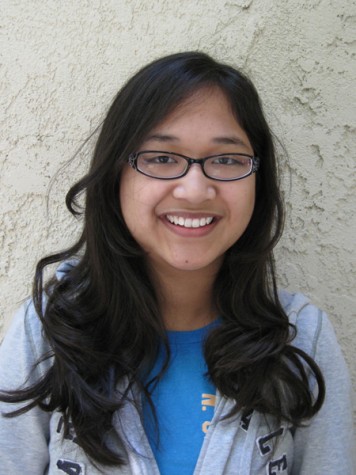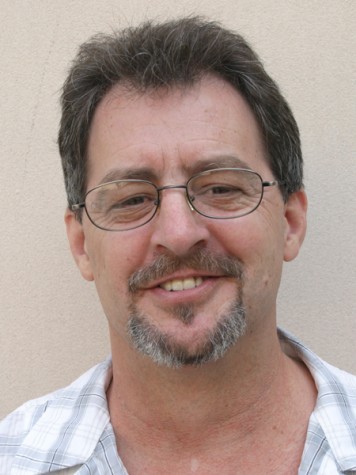An energetic assembly of students participated in “‘Yes We Can!’ ‘Yes We Did!’ ‘Yes We Will!’,” an interactive lecture celebrating Black History Month, on Feb. 25 in SC 212.
The hour-long lecture showcased readings, poetry and songs reflecting the journey of black culture throughout U.S. history.
Ethnic Studies professor Kerry Lee Riley introduced the lecture with a song and by encouraging the crowd to enthusiastically recite the lecture title, “Yes we can! Yes we did! Yes we will!”
Troy Davis from the counseling center contributed to the early part of the lecture by facilitating a discussion about the history of Black History Month and racism in today’s society.
“We don’t want to forget our past history and the blood that was shed on the floor for the future generations,” he said of why Black History Month is celebrated. “So it is important that not only African-American people, but Americans in general be familiar with the history because it is American history.”
The roots of Black History Month can be traced to the early 20th century, Davis said. He explained how Carter G. Woodsen, an educator and historian, campaigned for the celebration of a Negro’s History Week in 1925. Woodsen successfully instituted the celebration in the second week of February in 1926.
Black History Month is observed every February.
Davis talked about racism in society today by questioning the racial implications of Obama’s presidency.
“Because we have a black president is racism over?” he asked.
Davis also explained the one-drop rule and how it plays a role in racism today.
“If you have one-sixteenth of blood of, in this instance, of an African-American person, you have to identify with the ‘socially less desirable race,'” he said.
“What makes you think that [the president] identifies as black? The question itself is from racist ideology.”
Many in the audience disagreed that racism has come to an end, and one person said that racism seemed to be “more apparent” with Obama in office.
Davis also discussed other evidence of racism in America by bringing up the interracial couple in Louisiana that was denied a marriage license in October 2009. He also talked about a recent ghetto-themed party organized by fraternity students at UC San Diego that mocked Black History month.
Following Davis’ presentation, computer science instructor Sandi Sheffey recited a poem entitled “Gwendolyn Brooks” by Don L. Lee. Gwendolyn Brooks was the first African-American to win a Pulitzer Prize in 1950.
“[Lee] wrote many volumes of poetry during the ’60s and the ’70s,” Sheffey said. “Much of his writings were in black dialect and slang.”
Deborah Kinley from the Garfield campus also recited poetry, including “In the Depths of Solitude” by Tupac Shakur and “The Debt” by Paul Laurence Dunbar.
“Paul Laurence Dunbar wrote in Standard English, and he also wrote poems and plays in what we would call ‘black dialect,'” Kinley said of the poet.
Sheffey and Kinley recited other poems during the lecture, including “When in Rome” by Mari Evans, “Still I Rise” by Maya Angelou and “I’m Not Giving My Black Back,” a poem written in black dialect by an anonymous author.
Toward the end of the presentation Riley sang “Lift Every Voice and Sing,” written by James Weldon Johnson, which in 1937 came to be known as the Black National Anthem. He also asked students to remember the “African-Americans who came before us, whose shoulders we stand upon” by saying the names of “African-Americans who have led us thus far on this journey.”
Martin Luther King Jr, Malcom X, Harriet Tubman, Sojourner Truth and Rosa Parks were among the many names students called out during the moment of remembrance.
The lecture concluded with the students and faculty present singing and clapping to a famous gospel song, “This Little Light of Mine.”
With much participation in the discussions and songs, audience members demonstrated enjoyment of the presentation.
Business marketing major Jonathan Stinson had only positive things to say about the lecture.
“It was very good,” Stinson said. “I liked the whole thing because it touched on different aspects and . [the professors] incorporated us into the lecture.”
He also said he was glad to see that people of different ethnicities were present during the lecture and that there should also be more presentations on the histories of other cultures.
“‘Yes We Can!’ ‘Yes We Did!’ ‘Yes We Will!'” is part of the first Social Science/Humanities lecture series for the spring semester. The next lecture will be held on March 25 and will examine the extent of slavery in America today versus slavery before the Civil War.


